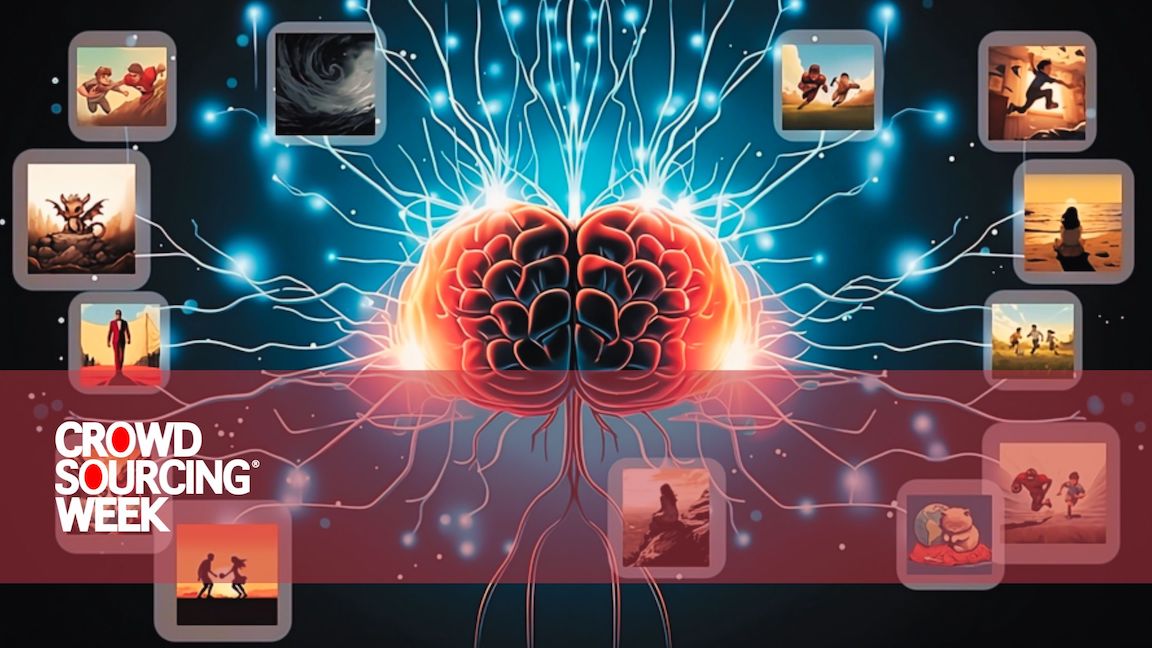In the ever-evolving world of artificial intelligence (AI), the quality and quantity of labeled data are pivotal in shaping the performance of AI models. Data labeling, the process of annotating data to teach AI algorithms, is a crucial step. However, it can be time-consuming and resource-intensive when handled in-house. This is where crowdsourced data labeling shines as a game-changing solution. In this blog, our crowdsourced data labeling examples show how it’s revolutionizing the landscape of AI training. Explore its significance, with a list of data labeling companies.
The Importance of Data Labeling in AI
AI models, particularly machine learning and deep learning algorithms, rely heavily on labeled data for training. Labeled data provides context and meaning to raw information, allowing AI systems to recognize patterns, make predictions, and perform tasks. This labeling process is often manual, requiring human annotators to categorize and tag data, making it labor-intensive and time-consuming. There is a growing number of data labeling companies.
Crowdsourced Data Labeling: Efficiency at Scale
Crowdsourced data labeling harnesses the power of the crowd to expedite the process. Here’s how it works.
Crowdsourcing platforms engage a large-scale diverse pool of human annotators from around the world, each contributing their skills and knowledge. A greater diversity of labelers can offset the potential for unconscious biases of any particular types of people to influence datasets. This is a key feature of many data labeling examples.
Tasks are divided into smaller, manageable units and distributed among the crowd, accelerating data labeling while maintaining quality because people in the crowd address only the issues related to their specialist skills and knowledge.
Quality control is maintained by crowdsourcing platforms through mechanisms such as consensus algorithms and review processes, which ensure accurate labeling.
Organizations can easily scale their labeling projects up or down to accommodate their specific needs through accessing an on-demand resource.
Applications of Crowdsourced Data Labeling
Crowdsourcing has a wide range of applications across different industries.
In AI systems that process images and videos, crowdsourced data labeling is vital for tasks like object recognition, facial recognition, and autonomous vehicle development. As a data labeling example, training an algorithm that’s part of the software steering a self-driving car to stop at a red light requires people to label all of the red lights in various images to create a signal for the algorithm to understand. Once trained successfully on very large amounts of image data, the algorithm will be able to independently understand a red light as a stop signal.
For language-related AI applications, natural language processing (NLP) systems use transcripts paired with audio to learn speech-to-text capabilities. Crowdsourced data labeling plays a key role in training AI systems for voice and speech recognition, enabling the better performance of voice assistants and transcription services. It helps annotate and categorize large amounts of text data, enabling tasks such as sentiment analysis, chatbots, and translation. The use of large crowdsourced data allows for regional accents, or people speaking in a secondary language with an accent to be better represented, and results in better-performing bots and voice-activated tech.
A particular challenge is training automated speech-based services to deal with people with speech impediments, who have a great deal of difficulty being understood by speech recognition algorithms.
In the healthcare sector, crowdsourced data labeling aids in the analysis of medical images, assisting in disease diagnosis and treatment planning. As a data labeling example of using a specialized crowd of medical experts, a mobile app called DiagnosUs gathers experts’ opinions on real-world scientific and biomedical data. Users review and label anything from images of potentially cancerous skin lesions or audio clips of heart and lung sounds that could indicate a problem. The experts’ main motivation is to accelerate their own learning, and their opinions help medical AI companies train and improve their algorithms.
Five Top Crowdsourced Data Labeling Companies
The best data labeling company in any individual case will depend on the specific needs and project requirements. Consider factors like project size, data complexity, budget, and desired turnaround time when choosing a partner. Nevertheless, here are five top crowdsourced data labeling companies that have established a strong market position.
Amazon Mechanical Turk (MTurk) is arguably the most well-known crowdsourcing platform, offering access to a vast pool of individuals for microtasks like data labeling, text classification, and content moderation. While MTurk requires careful task design and quality control, its affordability and scalability make it a popular choice for various use cases. It users are mainly in North America and Europe.
ScaleHub specializes in large-scale data digitization and annotation, leveraging its own automated platform and a global network of crowdsourced workers. They’ve successfully tackled projects like digitizing millions of medical records for Germany’s Deutsche Post and assisting research institutions with image tagging and analysis.
Appen is a leading provider of AI-powered data annotation solutions, and also harnesses the power of crowdsourcing for tasks like image annotation, sentiment analysis, and audio transcription. Their expertise in healthcare and technology makes them a top choice for companies needing high-quality labeled data for various applications. Originally an Australian company, it now operates in over 170 countries.
DataKind is a non-profit data labeling company that connects social good initiatives with expert crowds around the world to tackle data challenges related to global issues like poverty, health, and education. They utilize a curated network of data scientists, analysts, and labelers to ensure high-quality results for these impactful projects.
One of the data labeling examples of their work was a partnership with Hello Sunday Morning (HSM), an Australian-based nonprofit that has grown to be the largest online movement for alcohol behavior change. Moderators scan social media posts to identify people at risk. Except the workload got too large and the process had to be automated. Utilizing historical post data, Datakind’s work enabled building a model to predict the probability of a post being risky.
Lionbridge is a well-established player in the translation and localization industry, and operates in 26 countries. It also offers crowdsourced data labeling services through its AI-powered platform. It specializes in multilingual projects, leveraging their global network of linguists and data labelers to handle diverse languages and cultural nuances.
Key Takeaways
Crowdsourced data labeling is more than just a trend; it’s a transformative solution that accelerates AI development by providing large volumes of accurately labeled data. With its efficiency, scalability, and wide range of applications, it’s revolutionizing the way AI models are trained.
As the AI landscape continues to evolve, crowdsourced data labeling will remain a key driver of innovation, shaping the future of AI technologies and applications.





0 Comments